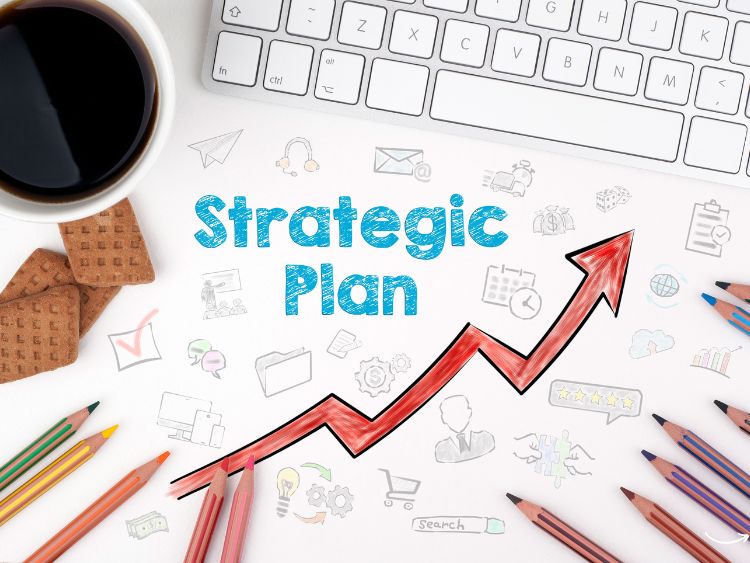Have you ever wondered what it takes to steer an organization towards success in today’s dynamic business environment? Well, it’s not just about having a brilliant idea or a strong market presence. It’s about developing the organization from within, enhancing its capabilities, and fostering a culture that promotes growth and efficiency. This process, known as organizational development, is crucial for businesses that aim to thrive amidst change and competition.
Organizational development (OD) involves a series of planned interventions aimed at improving an organization’s effectiveness and capability to adapt. From enhancing leadership skills to fostering a collaborative culture, OD encompasses various strategies designed to boost overall performance. In this article, we’ll dive deep into the concept of organizational development, explore its importance, and discuss practical strategies to implement it effectively. So, buckle up and get ready to transform your understanding of how organizations can evolve and succeed!
What is Organizational Development?
At its core, organizational development is a systematic approach to improving an organization by aligning its structures, strategies, and processes with its goals. It involves a holistic view of the organization, considering every aspect from leadership and communication to employee engagement and culture. By focusing on both individual and organizational growth, OD aims to create a more adaptable, efficient, and competitive entity.
Key Components of Organizational Development
- Leadership Development: Effective leaders are crucial for guiding an organization through change. OD focuses on enhancing leadership skills and developing future leaders.
- Change Management: Organizations need to adapt to external and internal changes. OD provides frameworks for managing change effectively.
- Employee Engagement: Engaged employees are more productive and committed. OD strategies aim to improve engagement through various initiatives.
- Culture Transformation: A positive and adaptive culture is essential for growth. OD helps in shaping and nurturing such a culture.
- Process Improvement: Streamlining processes and removing inefficiencies is a key aspect of OD.
Why is Organizational Development Important?
You might be wondering, why should organizations invest time and resources in organizational development? The answer is simple: to ensure long-term success and sustainability. Here are some compelling reasons why OD is vital:
1. Enhanced Adaptability
In today’s fast-paced world, the ability to adapt to changes is a significant competitive advantage. Organizational development equips businesses with the tools and strategies to respond swiftly to market shifts, technological advancements, and other external pressures. By fostering a culture of continuous learning and improvement, OD ensures that organizations remain agile and resilient.
2. Improved Performance and Efficiency
OD interventions are designed to streamline processes, eliminate redundancies, and improve overall efficiency. Whether it’s through better communication, optimized workflows, or enhanced employee skills, OD helps organizations achieve higher levels of performance. This not only boosts productivity but also leads to better customer satisfaction and profitability.
3. Employee Satisfaction and Retention
Happy and engaged employees are the backbone of any successful organization. OD initiatives often focus on creating a positive work environment, providing growth opportunities, and recognizing employee contributions. This not only improves job satisfaction but also reduces turnover rates, saving the organization the costs associated with recruitment and training.
4. Strategic Alignment
For an organization to achieve its goals, all its components need to work in harmony towards a common objective. OD ensures that the organization’s structure, culture, and processes are aligned with its strategic vision. This alignment enhances coherence, reduces conflicts, and drives collective efforts towards achieving organizational goals.
Strategies for Effective Organizational Development
Implementing organizational development requires a well-thought-out approach. Here are some strategies that can help you kickstart your OD journey:
1. Conduct a Needs Assessment
Before implementing any OD interventions, it’s essential to understand the organization’s current state and identify areas that need improvement. Conducting a needs assessment involves gathering data through surveys, interviews, and observations to pinpoint the gaps and challenges.
2. Develop a Clear Vision and Goals
Having a clear vision and specific goals is crucial for guiding the OD process. This vision should reflect the desired future state of the organization and provide a roadmap for achieving it. Ensure that the goals are SMART (Specific, Measurable, Achievable, Relevant, and Time-bound).
3. Engage Stakeholders
OD initiatives often require buy-in from various stakeholders, including employees, management, and external partners. Engaging these stakeholders early in the process ensures their support and commitment. Use communication strategies to keep them informed and involved throughout the OD journey.
4. Implement Change Management Practices
Change is an integral part of organizational development, but it’s not always easy. Implementing change management practices helps in managing resistance and ensuring a smooth transition. This includes clear communication, training, and support to help employees adapt to new ways of working.
5. Measure and Evaluate Progress
To ensure the effectiveness of OD interventions, it’s important to measure and evaluate progress regularly. Use key performance indicators (KPIs) to track improvements and gather feedback from employees to assess the impact of the changes. This data helps in making informed decisions and adjusting strategies as needed.
FAQs
What is the difference between organizational development and human resources?
Organizational development focuses on improving the overall effectiveness of the organization through planned interventions, whereas human resources (HR) primarily deals with managing employee-related functions like recruitment, payroll, and benefits. While HR is a crucial component of OD, OD encompasses a broader range of activities aimed at organizational growth and adaptability.
How can organizational development benefit small businesses?
Organizational development is not just for large corporations; small businesses can also benefit significantly. By implementing OD strategies, small businesses can improve their efficiency, adapt to market changes, and foster a positive work culture. This can lead to better employee performance, higher customer satisfaction, and sustainable growth.
What role does leadership play in organizational development?
Leadership plays a pivotal role in the success of organizational development initiatives. Effective leaders guide the organization through change, inspire and motivate employees, and ensure alignment with strategic goals. Leadership development is a key component of OD, focusing on enhancing the skills and capabilities of current and future leaders.
Can organizational development help in crisis management?
Absolutely! Organizational development equips organizations with the tools and strategies to manage crises effectively. By fostering a culture of resilience, improving communication, and enhancing problem-solving skills, OD helps organizations navigate crises and emerge stronger.
Summary
Organizational development is a powerful tool for enhancing an organization’s adaptability, efficiency, and overall performance. By focusing on leadership development, change management, employee engagement, culture transformation, and process improvement, OD helps organizations thrive in a dynamic business environment. Implementing effective OD strategies requires a clear vision, stakeholder engagement, and continuous measurement and evaluation. Whether you’re a small business or a large corporation, investing in organizational development can pave the way for long-term success and sustainability.
Authoritative Links
- https://www.forbes.com/sites/forbeshumanresourcescouncil/2020/07/15/why-organizational-development-is-important/
- https://www.mckinsey.com/business-functions/organization/our-insights/the-organization-blog
- https://hbr.org/topic/organizational-development
By focusing on these strategies and maintaining a commitment to continuous improvement, organizations can achieve remarkable growth and efficiency. So, are you ready to embark on your organizational development journey? Let’s get started!







